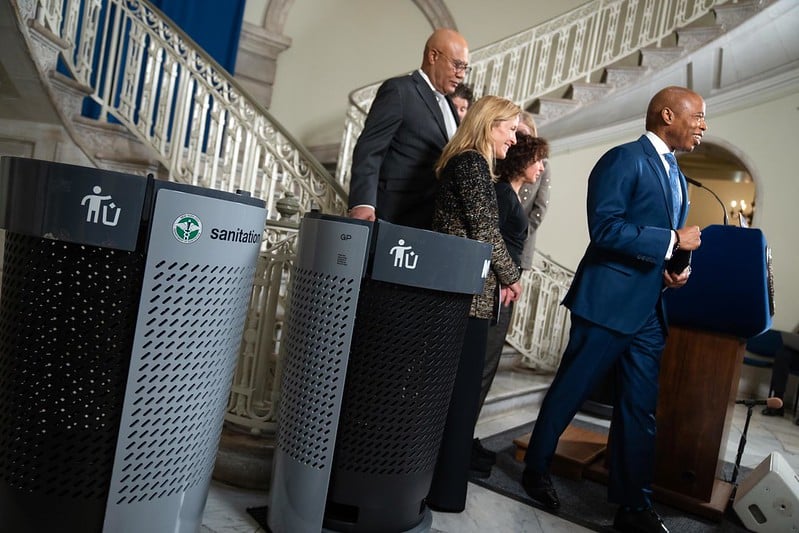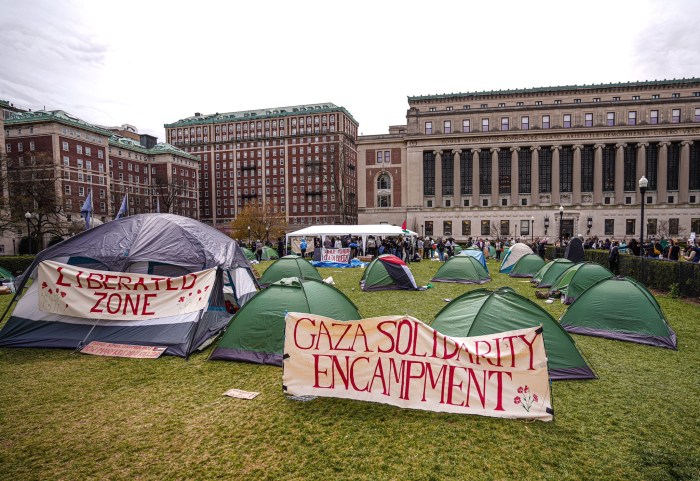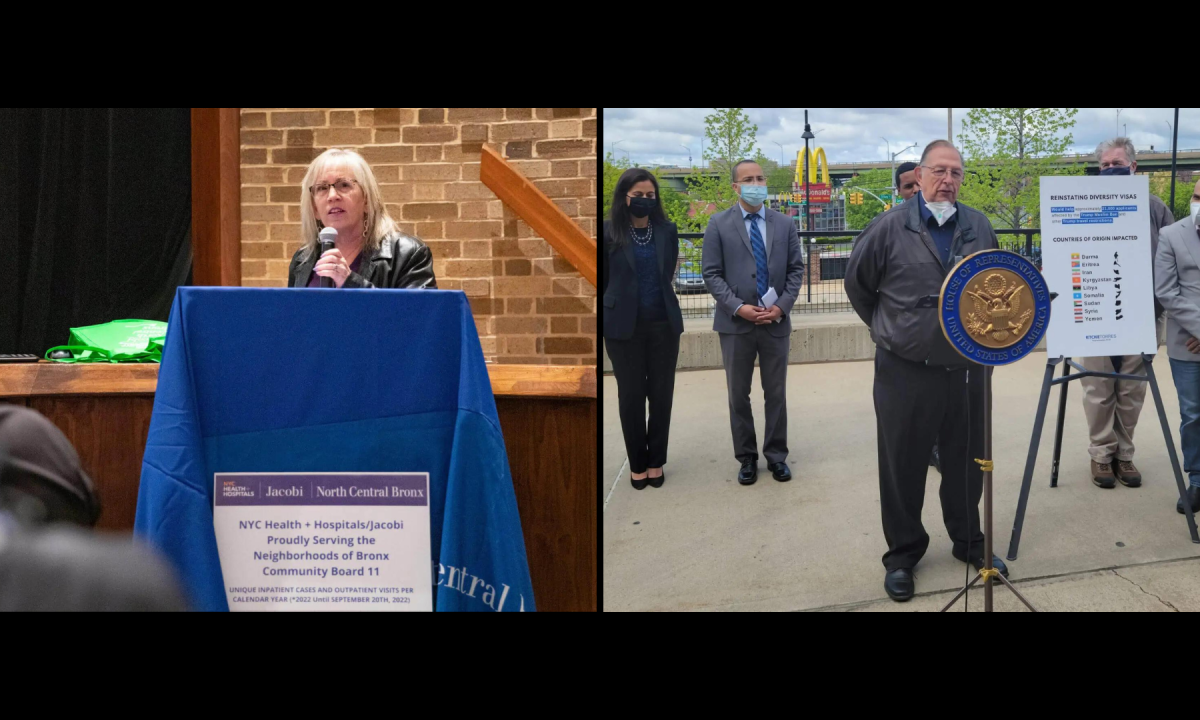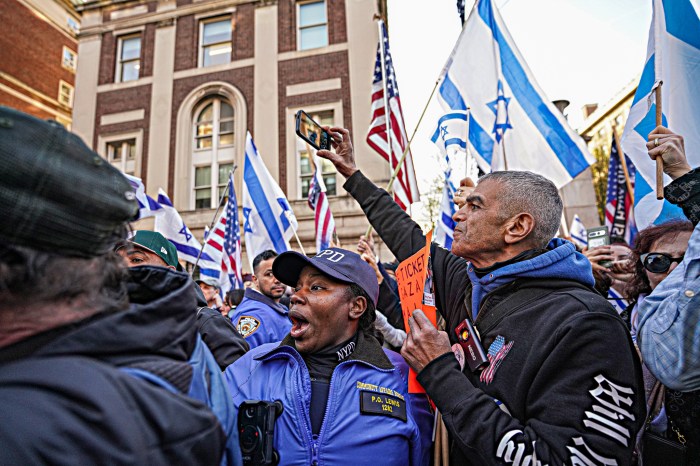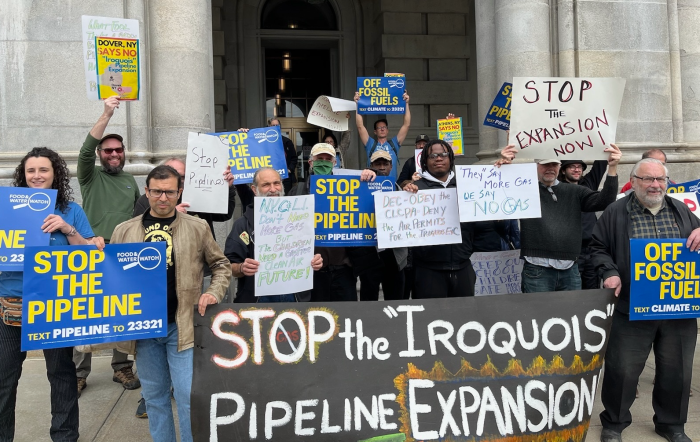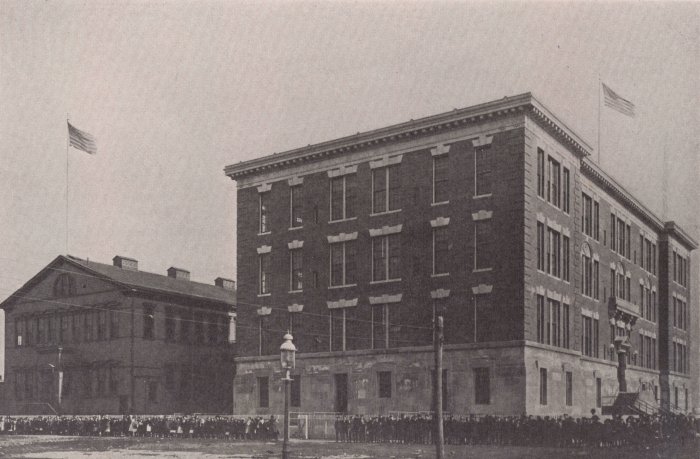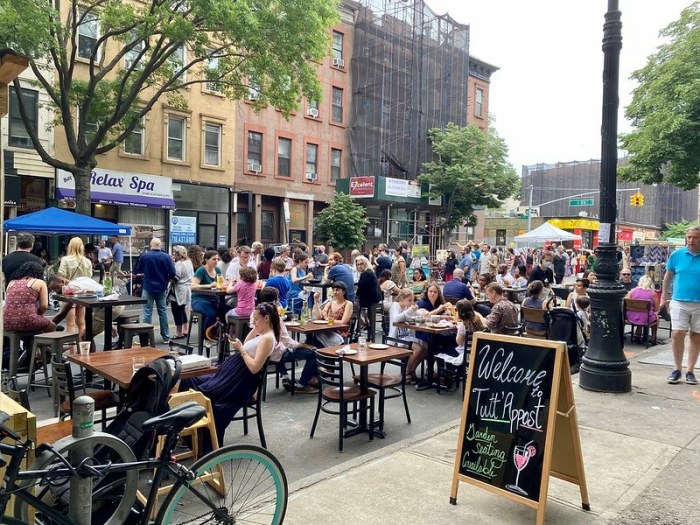For the second day running, Mayor Eric Adams announced he’s backtracking on some of the broad budget cuts he made in November — this time restoring funding to maintain the current number of litter baskets across the five boroughs and keep a program for temporary park workers in place.
The news follows Adams on Wednesday announcing similar restorations to the budgets of the NYPD and FDNY, due to savings gleaned from a planned 20% reduction in migrant crisis services and better than expected tax revenue collections. The across-the-board 5% cuts were initially made in the mayor’s November Financial Plan in a bid to close a $7.1 billion budget gap over the coming fiscal year — a deficit he says is mostly driven by the migrant influx.
The first cut Hizzoner reversed Thursday, to the Department of Sanitation (DSNY), will ensure that over 9,000 litter baskets are not removed from city streets, as was planned in November — maintaining the current level of 23,000 bins across the city. The DSNY restorations will also allow for the planned rollout of the department’s new trash bins, which are rat-resistant and easier for sanitation workers to handle, to continue.
“When we came into office we made it clear that we wanted to turn our mean streets into clean streets and we wanted to create open and safe spaces and these announcements today is clearly part of what we aimed to accomplish,” the mayor said, during a Jan. 11 City Hall news conference.
Resolving a legal challenge to budget?
The latter trim Adams is pulling back on to the Parks Opportunity Program (POP), which allows low-income individuals to work as cleaners in city parks for six month periods, drew a lawsuit from the city’s largest municipal union — District Council 37 (DC37) — in December.
When asked if he restored POP’s funding because of the suit, Adams said his decision was driven by a conversation with DC37 Executive Director Henry Garrido in which he learned the program is vital to helping low-income people get back into the job market.
“You can’t be entrenched in decisions,” the mayor said. “When people come and convince and give a good case for something, you have to be flexible enough to say ‘let me look at it.’”
Garrido, in a statement following the announcement, applauded Adams for restoring the program, which offers thousands of temporary jobs that can lead to permanent positions in the Parks Department.
“This decision is a positive step in a budget cycle that’s presented immense challenges for our members and the administration, and we look forward to collaborating on additional solutions,” Garrido said.
It was not immediately clear if DC37 would be dropping its suit.
Council: The money existed all along
The mayor announced the restorations just days before he is set to unveil his preliminary budget for the coming fiscal year — Fiscal Year 2025, a plan which he has warned will contain another round of 5% cuts.
While leaders in the City Council applauded the restorations, they also took the opportunity to lambast the mayor’s fiscal management.
Council Speaker Adrienne Adams and Finance Chiar Justin Brannan (D-Brooklyn), in a joint statement, pointed out that the council had previously predicted there was enough projected revenue to avoid some of the mayor’s most severe cuts. Furthermore, they urged the mayor to take a less broad and more targeted approach to budgeting.
“The council has said all along the money exists to avoid overly broad cuts and protect essential services relied upon by our constituents,” they said. “This latest move to restore litter basket services and the Parks Opportunity Program only reinforces the fact that these and many other mid-year cuts were unnecessary. The Council will continue to push the administration to accurately budget, restore its most harmful cuts, and take a different approach that prioritizes vital services for New Yorkers.”
But the mayor pushed back on those criticisms on Thursday, arguing that his job necessitates he be more fiscally conservative than the council.
“The council projections can be more liberal, we have to make sure that we have enough money to pay the bills, to keep the lights on,” he said. “And we’ve done it successfully through two budgetary cycles and we will continue to do so.”



